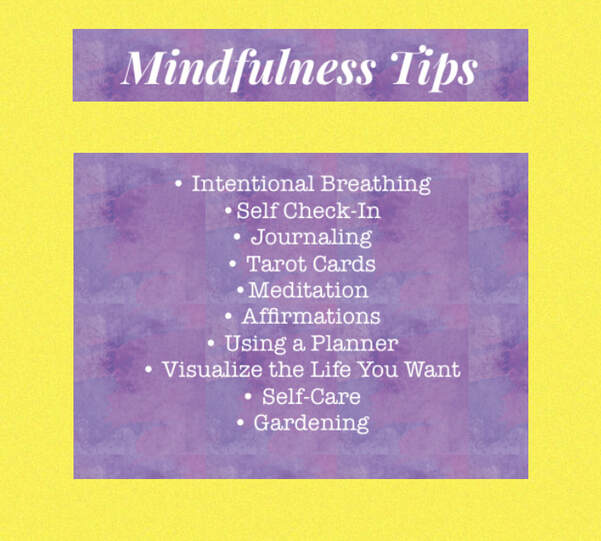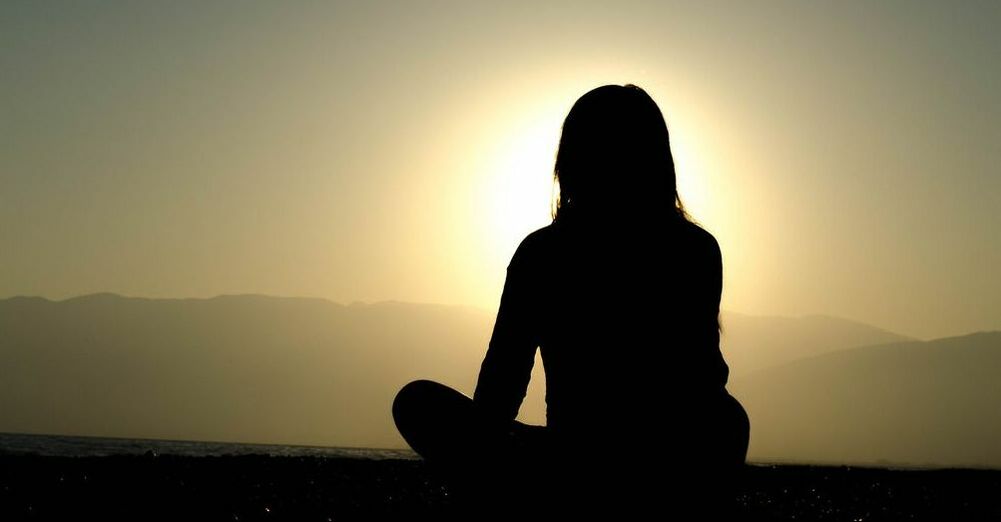 Intentional Breathing: Stop what you are doing and take a few deep, intentional breaths; inhale through your nose, fill your lungs to capacity, pause, and exhale through your mouth. Notice how your chest expands as you inhale, and contracts as you exhale. Self Check-In: While breathing intentionally, ask yourself how you are feeling, why you are feeling that way, and what you can do moving forward to either continue or stop feeling that way. And remember, “just because” or “I don’t know” are valid answers. You may need more self-reflection, or perhaps there is a mental condition behind your feelings. The important thing is that you are taking the time to check-in with yourself. Journaling: Writing down your self check-in with the date will allow you to track your mood and your life, and possibly discover triggers, things that make you happy, toxic relationships, etc. Journaling is an incredible outlet and essential for self-reflection. Being able to look back at our journey, determine cycles we are stuck in, and/or discover clues about our purpose is a gift. It is a difficult habit to build, even for people who love to write, but even five minutes a day when you wake up or before you go to sleep is worth committing to. Tarot Cards: All of these practices intertwine beautifully, and tarot cards are no exception. They are far more than cards used for fortune telling, they can be invaluable for diving into your subconscious, providing inspiration, and facilitating communication between you and the Divine. Whenever I am feeling stuck or unsure what to write about or meditate on, I turn to my tarot cards. I take note of the first thing that pops into my head and where my eyes are drawn to on the card(s) I pull. This is a great way to exercise your intuition and peek into your subconscious. Meditation: Meditation is the ultimate mindfulness practice. However, people often turn away from it because they dread sitting still or cannot quiet their mind. This is when we need meditation the most, and it is more than sitting cross-legged and being silent. Meditation is being mindful enough to greet our thoughts without judgement and send them on their way. Meditation is intentional breathing. It can be done when you are walking, riding the bus, or even dancing. You can incorporate chants, affirmations, or listen to a guide. Choose one or two meditations and commit to doing them everyday for a week, then pick out a new one the next week, and so on. Journal before and after your experience. Do some research on the origins of different practices. Create your own meditation! Do not forget to always include intentional breathing. Whenever my mind wanders, rather than getting mad at myself I simply come back to my breathing and ease into the practice once more. Affirmations: Part of being mindful is recognizing not only who you are, but who you want to be. Affirmations allow us to hyperfocus on something we desire. They can aid in building habits, changing our mindset, and motivating us towards our goals. You can have one affirmation that provides you comfort, mine is “I am safe, happy, healthy, successful, and strong”, you can choose an affirmation to accompany your meditation practice each week, or just choose one intuitively in the moment. Affirmations can give our mind something to focus on and help clear external distractions. Affirmations are a lot like spells, and the intention behind them should be clear. Put faith behind your affirmations, and they become manifestations. Using a Planner: It may seem counterintuitive to use a planner when developing your intuition, but on the contrary, being organized and disciplined frees up our intuition to do its job and clears up our communication lines with our inner self. It can be overwhelming to think about all the things we need to get done or want to do. Prioritizing our goals will help us to accomplish them quicker. There comes a point where we have to stop asking ourselves where to begin and just start. Use your intuition to choose which path to follow, plan it out, and see it through. Make your goals specific and realistic. Start small. Each goal you reach will boost you higher and higher towards fulfilling your purpose. You will start to see your potential, recognize your gifts, and develop them. You will learn the necessary lessons to get you to where you want to go. Visualize the Life You Want: This is a great practice to use when journaling. Write down what you want for yourself, and be as specific as possible. Describe a walkthrough of your typical day in the future, from your family and friends, to the house you live in, to your yard, the car you drive, your career, any hobbies, pets, vacations. Dream big. Create a vision board to go with your story. Try doing this practice once a month or every six months. See what changes, and what stays the same. Prioritize. Brainstorm what steps you can take to achieve each priority. Make a five year plan. Make a plan for the year ahead. Start planning out your months and weeks. Turn your dream into a reality. Self-Care: If we want something to work for us to the best of its ability, it requires maintenance. The way our cars need gas and oil changes, our bodies requires our attention. From drinking enough water, to eating nutritious foods, getting enough sleep, stretching, exercising, fresh air and sunlight, and keeping our skin clean and moisturized… self-care is an investment in ourselves that will provide unimaginable benefits to our lives. It’s difficult to justify spending the time and money (PSA: you do not have to spend a lot of money to take care of yourself!) when we have bills to pay and mouths to feed, but neglecting ourselves can lead to an expensive lesson down the road. When your body starts giving out and you need time off work, frequent visits to the doctor, and expensive prescriptions, you’ll realize that it would have been far easier to invest in preventative care. And it is more than taking care of your physical body, mental health matters as well. Stress can manifest itself in physical ways: inflammation, migraines, back pain, and heart disease are just a few. Make the effort to take care of yourself, little by little. Make an appointment with your doctor (find one you like - don’t give up!), drink more water, check out www.choosemyplate.gov and start eating better, stretch in the morning, get on a consistent sleep schedule, start going for walks… do a self check-in each morning and/or night and track the changes. If you need a little guidance, try referring to Maslow’s Hierarchy of Needs and see if you are fulfilling each level. What aspects could use extra attention? Gardening: I am a tad bit biased on this one, gardening is my passion, and it is not for everyone. However, if you want to garden and bring plants into your life, ANYONE can. It doesn’t matter if you lack a yard, it’s all about finding the right plant for the conditions you can provide. If you lack even a small space outside for a container, research houseplants! Take note of the climate you are in (is it cold, hot, humid, dry?) and the natural lighting in your space (does the sun come directly through any of your windows?). How often do you go away? Maybe succulents or cacti are ideal for you. If you do have a small space for a small container, there are plants that require very little room, especially herbs. Think about the types of food you like to eat and the herbs you reach for frequently. Basil, thyme, oregano, parsley, cilantro, chives, tomatoes are a few common plants to grow in containers. Which plants pair well together and can share a container? Maybe you have enough space for a raised bed, check out what that entails on Pinterest or Google! Winter is the perfect time to start scoping out your space, time availability, and budget. I would advise starting out with one to three plants that you can devote your time and energy to. Study how much light, water, and nutrients they require. Are you going to start them from seed? Do you need to start them indoors? When? Can you buy a plant already started from a local plant nursery? What is the best way to harvest and preserve the plant? Gardening is more than nurturing and taking responsibility for a living thing, and plants give us more than nourishment and beauty, they provide us a lesson in how the Universe works and how we can take care of ourselves. They can change our entire outlook on life.
2 Comments
|
AuthorCasey Downs (@amindfulintuitive) writes all blog posts. Archives
April 2023
|

 RSS Feed
RSS Feed